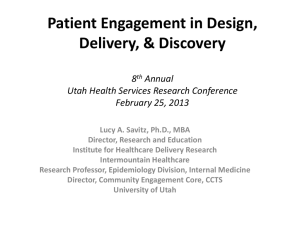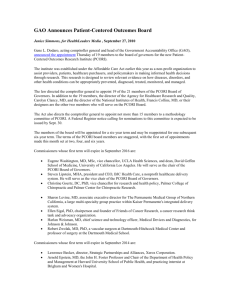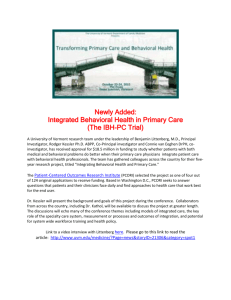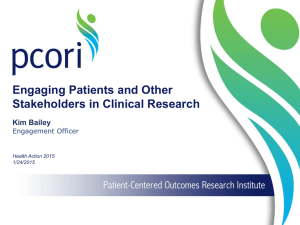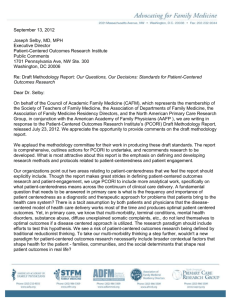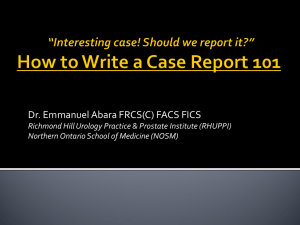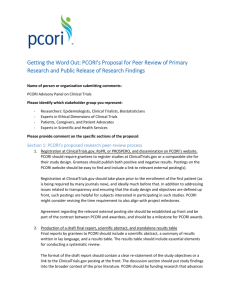PLOS Medicine response to PCORI Peer Review Proposal
advertisement
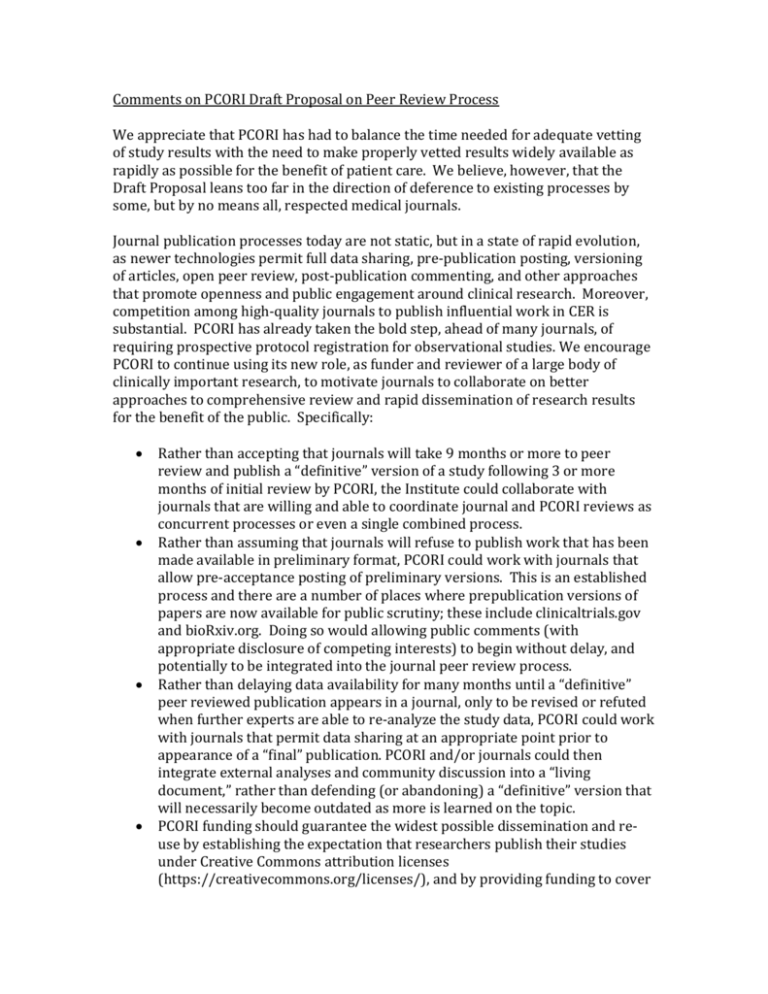
Comments on PCORI Draft Proposal on Peer Review Process We appreciate that PCORI has had to balance the time needed for adequate vetting of study results with the need to make properly vetted results widely available as rapidly as possible for the benefit of patient care. We believe, however, that the Draft Proposal leans too far in the direction of deference to existing processes by some, but by no means all, respected medical journals. Journal publication processes today are not static, but in a state of rapid evolution, as newer technologies permit full data sharing, pre-publication posting, versioning of articles, open peer review, post-publication commenting, and other approaches that promote openness and public engagement around clinical research. Moreover, competition among high-quality journals to publish influential work in CER is substantial. PCORI has already taken the bold step, ahead of many journals, of requiring prospective protocol registration for observational studies. We encourage PCORI to continue using its new role, as funder and reviewer of a large body of clinically important research, to motivate journals to collaborate on better approaches to comprehensive review and rapid dissemination of research results for the benefit of the public. Specifically: Rather than accepting that journals will take 9 months or more to peer review and publish a “definitive” version of a study following 3 or more months of initial review by PCORI, the Institute could collaborate with journals that are willing and able to coordinate journal and PCORI reviews as concurrent processes or even a single combined process. Rather than assuming that journals will refuse to publish work that has been made available in preliminary format, PCORI could work with journals that allow pre-acceptance posting of preliminary versions. This is an established process and there are a number of places where prepublication versions of papers are now available for public scrutiny; these include clinicaltrials.gov and bioRxiv.org. Doing so would allowing public comments (with appropriate disclosure of competing interests) to begin without delay, and potentially to be integrated into the journal peer review process. Rather than delaying data availability for many months until a “definitive” peer reviewed publication appears in a journal, only to be revised or refuted when further experts are able to re-analyze the study data, PCORI could work with journals that permit data sharing at an appropriate point prior to appearance of a “final” publication. PCORI and/or journals could then integrate external analyses and community discussion into a “living document,” rather than defending (or abandoning) a “definitive” version that will necessarily become outdated as more is learned on the topic. PCORI funding should guarantee the widest possible dissemination and reuse by establishing the expectation that researchers publish their studies under Creative Commons attribution licenses (https://creativecommons.org/licenses/), and by providing funding to cover reasonable article publication charges by journals that provide open access publication. Otherwise, important work intended to benefit the public will remain behind subscription paywalls that limit access outside of large institutions, and locked into copyright restrictions that discourage sharing and adaptation for broad public use. We believe that these actions are necessary to ensure transparency, reliability, and timely access to the research that PCORI is charged to make publicly available. Respectfully submitted by: Larry Peiperl MD Chief Editor, PLOS Medicine Dr. Virginia Barbour Medicine and Biology Editorial Director, Public Library of Science
